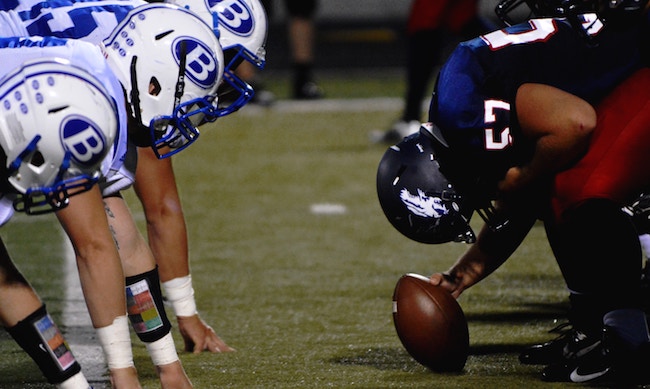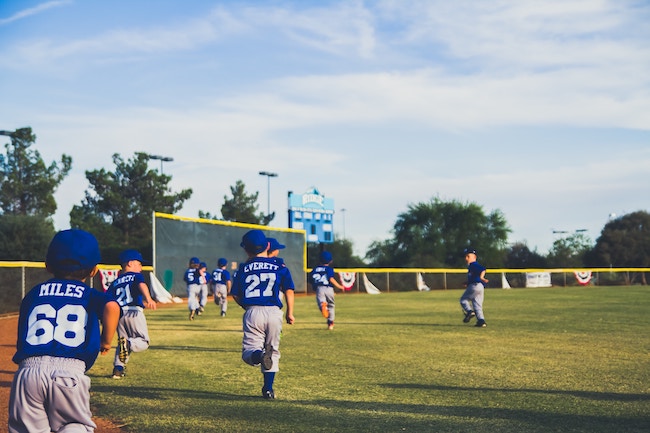How Can Athletes Protect Their Smiles With Mouthguards

How Can Athletes Protect Their Smiles With Mouthguards
Mouthguards used to be reserved for the sports noted for violent collisions. In short fashion it was learned that mouthguards, not only protected your smile, but also had other safety benefits. Read on for the benefits of mouthguards, when they should be worn and what to look for.
How to protect your teeth, reduce concussions and temporal mandibular joint trauma if you play sports?
Safety is the most important reason why hockey players, football players, lacrosse and other players suit up with all that gear. Gloves, shin guards, helmets, and leg guards are just a few of the items athletes use to protect themselves. Whether you are a professional athlete or a hobbyist, you value your teeth. It is not just about your smile; your pearly whites are essential to your overall health. This is why it is important to add one more gear to your kit – a mouthguard.
Mouthguards are essential for keeping your teeth safe when participating in different kinds of sports. These guards protect your teeth from chipping, cracking, and breaking in case of an impact. There are different types of mouthguards, including readymade, boil and bite, and custom made. If you have dental restoration work or braces, you should ask your dentist how you can use a mouthguard for protecting your teeth.
Sports can be dangerous for your teeth – and it’s not just the usual suspects
Sports, by its innate nature, comes with a wide range of potential risks even when it is all about fun and thrill. It is not just the usual suspects like football and hockey that have high injury risks, basketball and soccer players are also at risk. Even a casual game of fun can be dangerous for your teeth. Mountain bikers and skiers also have frequent injures to their teeth and jaws. The kind of damage you can suffer from includes cracked, chipped and lost teeth. Such injuries can be expensive to fix and some may also affect your smile and looks in the long-term. Other serious injuries happen to your jaw joints; concussions are worsened by the shock wave traveling between unprotected teeth.
You should have a plan to protect your teeth, joints and head from concussions even when you are participating in sports that might result in collisions. Just because there is no risk of bat, ball or another person’s arm or foot hitting you in the tooth, there is still the potential risk of falling or running into a hard object.
What a mouthguard can do?
A mouthguard is a dental appliance that shields and protects both hard and soft tissues including the teeth, lips, jawbones, gums, cheeks, and tongue from forceful blows. Usually, contact sports make it necessary to have a mouthguard, but it is recommended to use it in all competitive and solo sports. Studies show that high-quality guards when properly fitted can minimize or prevent potential risks of tooth injury and concussions from blows to the head. These guards stabilize the oral cavity and thus protect your smile too.

When should it be worn?
It is recommended to use the protective guard in all kinds of sports where there is a risk of blow to the mouth or head. This includes sports like boxing, football, lacrosse, basketball, soccer, rugby, wrestling, baseball, biking, skiing and ice hockey among others.
What makes a good mouthguard?
In order to provide optimal protection to your precious ivories, it is important that you choose the right mouthguard.
Learn about wearing a mouthguard with braces.
What Makes the Perfect Mouthguard
- Comfort & Perfect Fit: It is most important that the guard you choose is comfortable to wear and fits perfectly. It is also important that the guard doesn’t interfere with speaking and breathing. Look for a unit that has good retention and doesn’t require you to keep clenching it in place with your teeth. It should intimately hug your teeth without binding or rocking.
- Design: There is the single-arch design and the dual-arch design. The dual-arch design will fit over both the upper and lower jaws, unlike the single-arch design that covers only the upper jaw. It is also considered to provide additional level of protection for the jaw joint.
- Shape & Outline: Besides comfort and design, it is also important to choose a mouthguard that properly covers your teeth. Its outline should go beyond the teeth and over to the gum tissue. This helps in spreading the forces from a blow away from the teeth. This can also protect the lower jaw.
- Proper Thickness: Different kinds of sports involve different levels of potential forces that a player may have to face. For example, as a boxer, you are much more likely to face blunt force on your teeth and mouth compared to being a baseball player. Guards have different levels of thickness depending on the sports they are meant for. Mouthguards can range in thickness from 2 mm to 4 mm.
Care and Replacement of Mouthguards
Mouthguards should be stored in a hard case to prevent distortion and thoroughly cleaned after every use. If they look disgusting, they are disgusting! Oral fungus and bacteria will grow on them if not cleaned properly. For growing kids, they should be replaced after every season so jaws can continue to grow unimpeded by a mal-fitting guard. Adults who use them less and are done growing, replace after 6-18 months.
Other Considerations
It is also important to consider the resilience and stiffness of the guard. Resilience refers to the level of sponginess of the piece and it is important for absorbing the force. There should also be some level of flexibility in the mouthpiece, making it comfortable to wear. Stiffness or rigidity is a factor that plays the key role in distributing the forces over a larger area. This factor helps in preventing the force from getting focused on a particular area or tooth.
What mouthguard works best for your athlete?
There are different types of mouthguards and what works best for you depends on the kind of sports you participate in and what may be more convenient for you. The different options are as follows:
- Stock: As the name suggests, these are readymade mouthpieces that are not made to fit your teeth. You will have to find a size that is close to your requirements. These are slightly better than nothing at all and only used in an emergency.
- Boil & Bite: These mouthguards are meant to be softened in boiling water at home so that they fit your teeth when worn. These are minimally acceptable.
- Custom-Made: Custom-made mouthguards are designed by your dentist and are the perfect fit for your teeth. These are a lot better than both boil and bite and stock mouthpieces. These pieces can also accommodate any dental work such as braces if you are using them. These have varying designs and can provide optimal protection and comfort.
There are many advantages of using a mouthguard. You may be a professional athlete or someone who likes to participate in sports occasionally. If you are serious about protecting your teeth and maintaining your smile, make sure to choose the right type of mouthguard.
###
Dr. David A. Cook provides family, preventive dentistry and cosmetic dentistry services from his offices where Minneapolis meets Edina at 50th and France. Set up an appointment to see him by calling (612) 824-7033.
